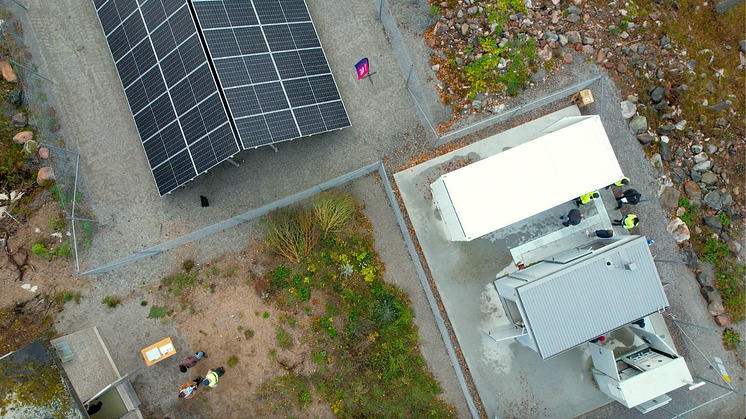In a groundbreaking pilot project in Roslagen, Sweden, Telia and the Swedish Post and Telecom Authority (PTS) have extended the backup power duration of a mobile base station from 4 hours to 110 days. By combining fossil-free hydrogen, fuel cells, solar panels, and batteries, this innovative solution sets a new standard for ensuring connectivity during prolonged power outages.
Revolutionizing Mobile Network Resilience
Today, mobile base stations primarily rely on electricity from the power grid, with batteries and diesel generators providing backup. Recognizing the potential of hydrogen as a clean energy solution, Telia and PTS launched the project in 2022 to explore how hydrogen can work alongside renewable energy sources to extend operational uptime during grid failures.
The pilot, located at a Telia mast in Roslagen, integrates on-site solar power generation, hydrogen production and storage, and hydrogen-based fuel cells. The result is a backup power system that is sustainable, long-term, and renewable, enabling the station to operate for 10 days initially, with the capacity to reach 110 days in the event of extensive outages.
Meeting Growing Demands for Connectivity
Staffan Åkesson, Chief Technology Officer at Telia, highlighted the importance of robust infrastructure:
“Reliable power supply is essential for maintaining secure and consistent connectivity. With growing demands for network availability and the current global climate, we must enhance backup power capabilities. This project has already provided invaluable insights that will help us develop robust, sustainable solutions to secure our network for the future.”
A Collaborative Effort to Advance Energy Resilience
The project is the first of its kind in Sweden and aims to maximize off-grid operational capacity through renewable energy production. By identifying cost-effective and long-term solutions, Telia and PTS are paving the way for a resilient and sustainable digital infrastructure.
Anders Ekblad, Engineer at PTS’s Robustness Unit, emphasized the innovative approach:
“Neither batteries nor diesel alone are sustainable long-term solutions for extended backup power. This project focuses on combining multiple technologies, and the results so far are groundbreaking—several months of backup power compared to the current standard of just 4 hours.”
Ekblad also highlighted the added benefits of hydrogen:
“The hydrogen that powers the system is produced locally using renewable energy, which is a bonus. This marks a significant step toward a more sustainable and resilient digital infrastructure.”
A Step Toward the Future
The pilot project is jointly funded by PTS and Telia, with Telia overseeing the construction, operation, and testing of the site. Key collaborators include Euromekanik, PowerCell, Polarium, and Soltech. The installation and testing phase will continue until December 2025, focusing on evaluating results, cost efficiency, and future scalability.
The Role of Hydrogen in Energy Transition
Hydrogen acts as an energy carrier, similar to electricity, and is not a primary energy source. It can be used to store, transport, and supply energy and is considered fossil-free if produced with renewable electricity from sources such as solar, wind, hydro, or nuclear power.
Pioneering the Future of Connectivity
This innovative project by Telia and PTS demonstrates the potential of hydrogen and renewable energy to enhance network resilience, setting a new standard for connectivity during extended power outages. With the ability to sustain operations for months, it serves as a blueprint for the future of reliable and sustainable digital infrastructure.


